‘Hey’ is a new series where we catch up with interesting people from Plymouth and the surrounding area. We discover what they are about and what they are up to.
Next up in the series is one of our very own, Steve Kyffin.
Bluestone360 was founded by Steve Kyffin and Mervyn Orchard in 1988. After being away in big cities for quite some time, they both found themselves back in Cornwall and joined forces.
Starting as sole traders in one flat in Mannamead Road, the team grew (sorry, can’t name everyone here!) and filled the whole building of 5 flats before moving to new offices.
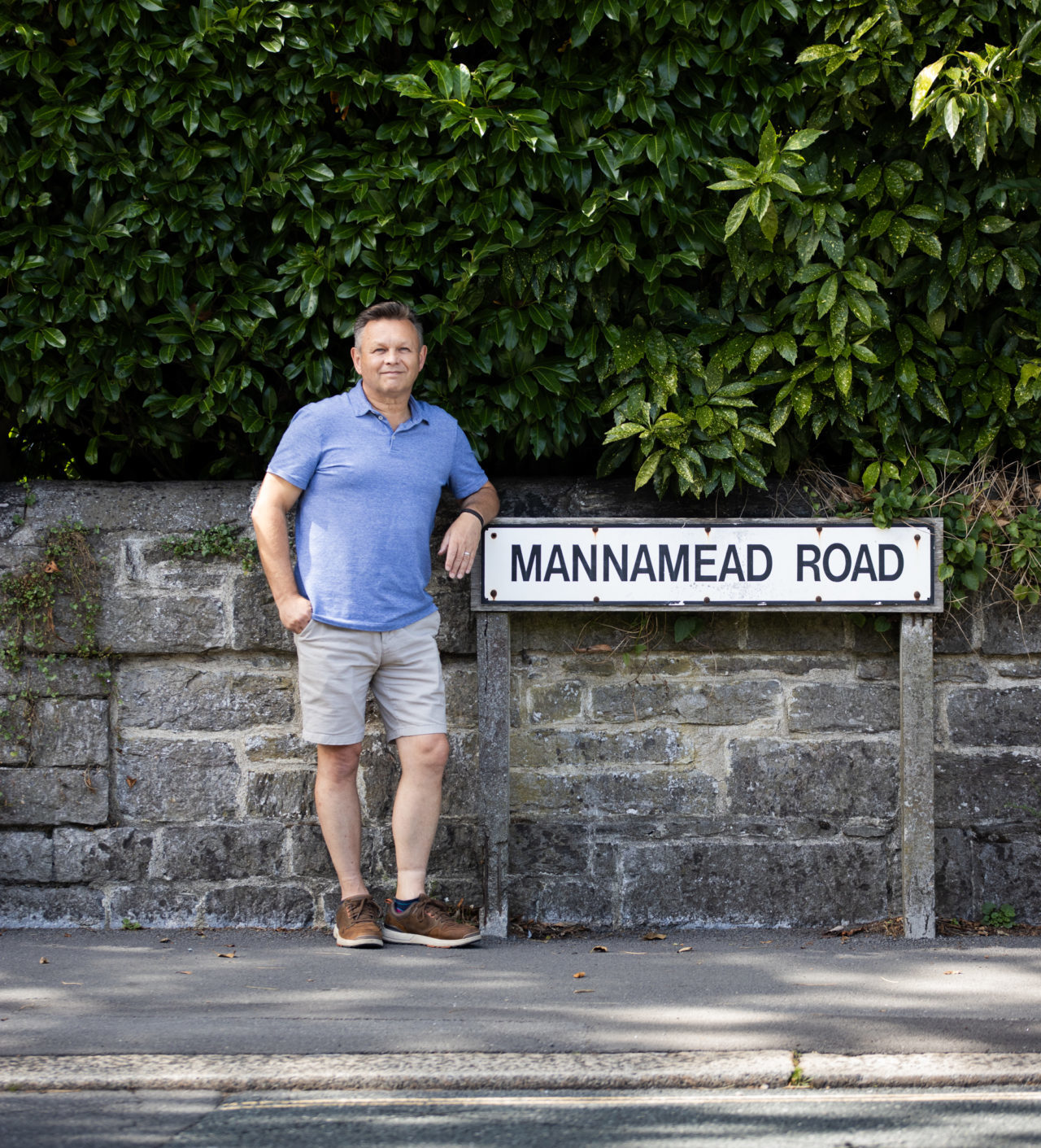
How are you?
Good. Yeah, all good.
How did Bluestone 360 come about?
It starts off at art college down in Cornwall, so a long, long time ago. Naturally you make some friends and I met a character called Mervyn Orchard. He was a technical illustrator, so someone who draws straight lines and curves with rulers. I think that’s what they do. We had a conversation one evening after a few drinks at the Penventon Hotel, and we planted the seed that we should set up business one day together. So that was the start and I’ll always remember that because it was such a casual conversation. After college he went away to South Africa to do technical illustration and I went up to London. I did various jobs up there and then moved to Bristol. Probably four or five years later, I ended up back in Cornwall. He also ended up coming back to Cornwall and we got in contact and just went ‘shall we set up that business then?’ as if the intervening years never happened. We thought Plymouth was a good location because we both love Cornwall and Devon, it had good connectivity and was by the sea.
We started up as sole traders for two years and then joined up into one business we called Bluestone. So that was how it came about.
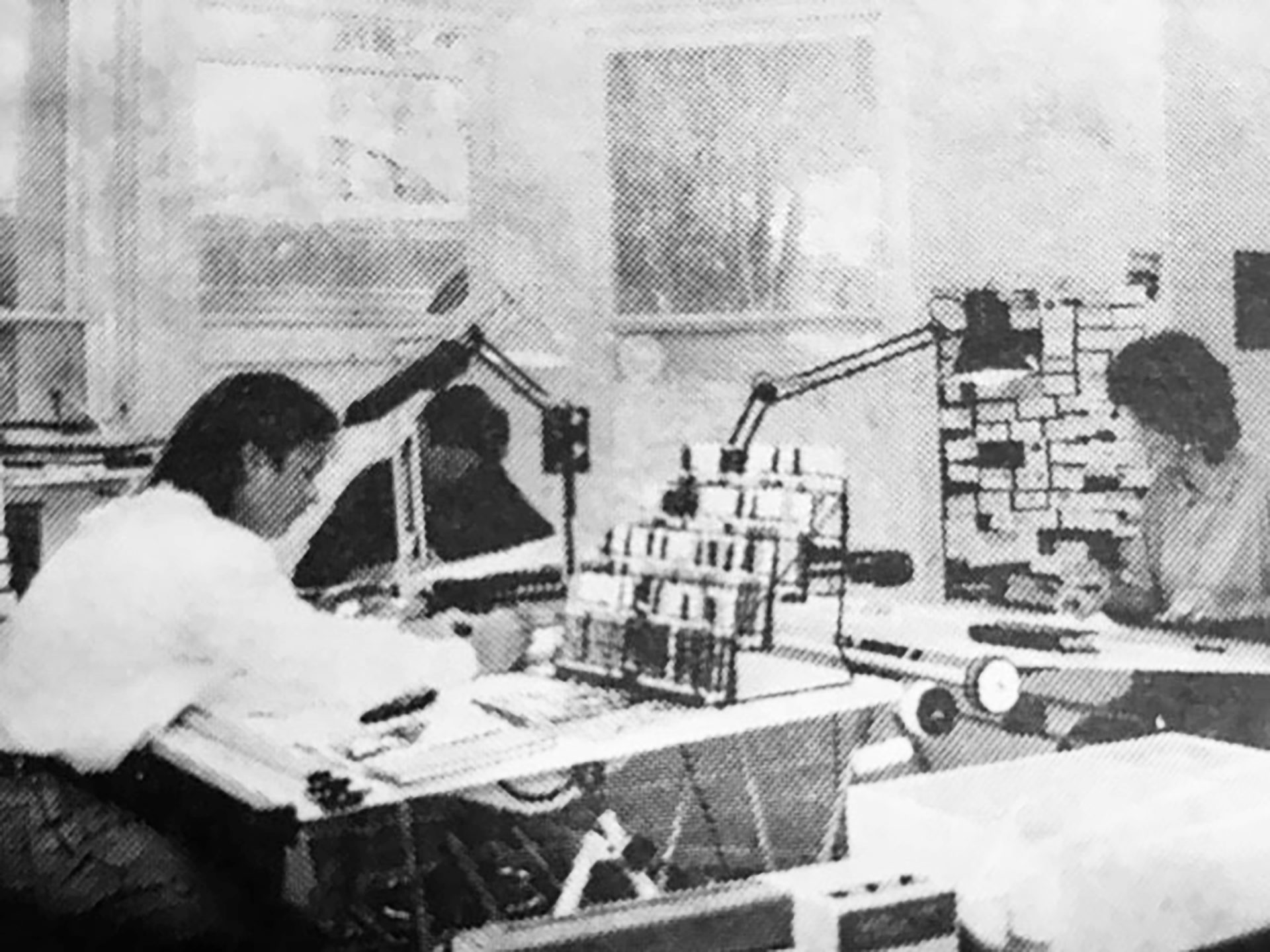
Can you remember one of your first clients?
I have memories of being sat with a very tiny drawing board on my lap drawing away with the old magic markers, sat in a hallway somewhere doing illustrations for T-shirts. We had a few surf brands initially, and then using friends and contacts we got Abru Ladders as one of our first clients along with Plymouth Citybus.
Although Mervyn did do some technical illustration, there wasn’t a lot of demand so we focused on the design and marketing more and more. Merv, who was arguably better with people, would go to more of the meetings and networking to drive new business.
We were quite bullish in terms of getting in front of people. I think that’s just the way it was back then, before the internet. Which is scary now, when I think about it.
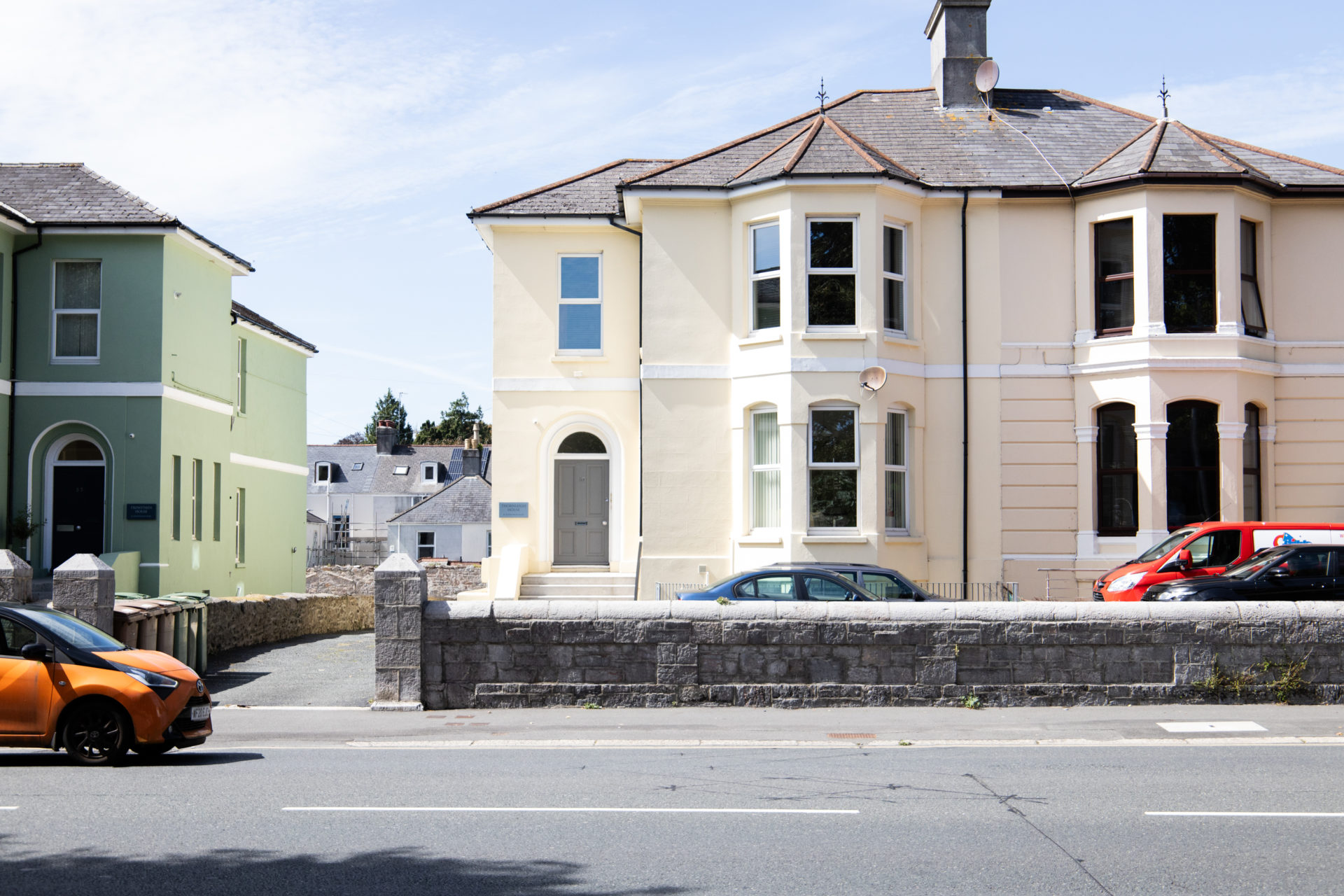
So was 1988 when you started the company?
Yeah, it was, though we’d had two years previous as individual sole traders, so that’s probably where we put some roots down in terms of potential clients to grow into.
What was Plymouth like in the late 80s?
Brilliant. Union Street was open every night. The Armed forces were around which made it busy and interesting, but every night was a good night if you wanted it to be. I remember going out for something like 25 nights in a row. We lived in the Barbican which was always busy, it was hard to stay in. That was the focus, to just have a good time, good fun. Plymouth was alive and it was a really good time.
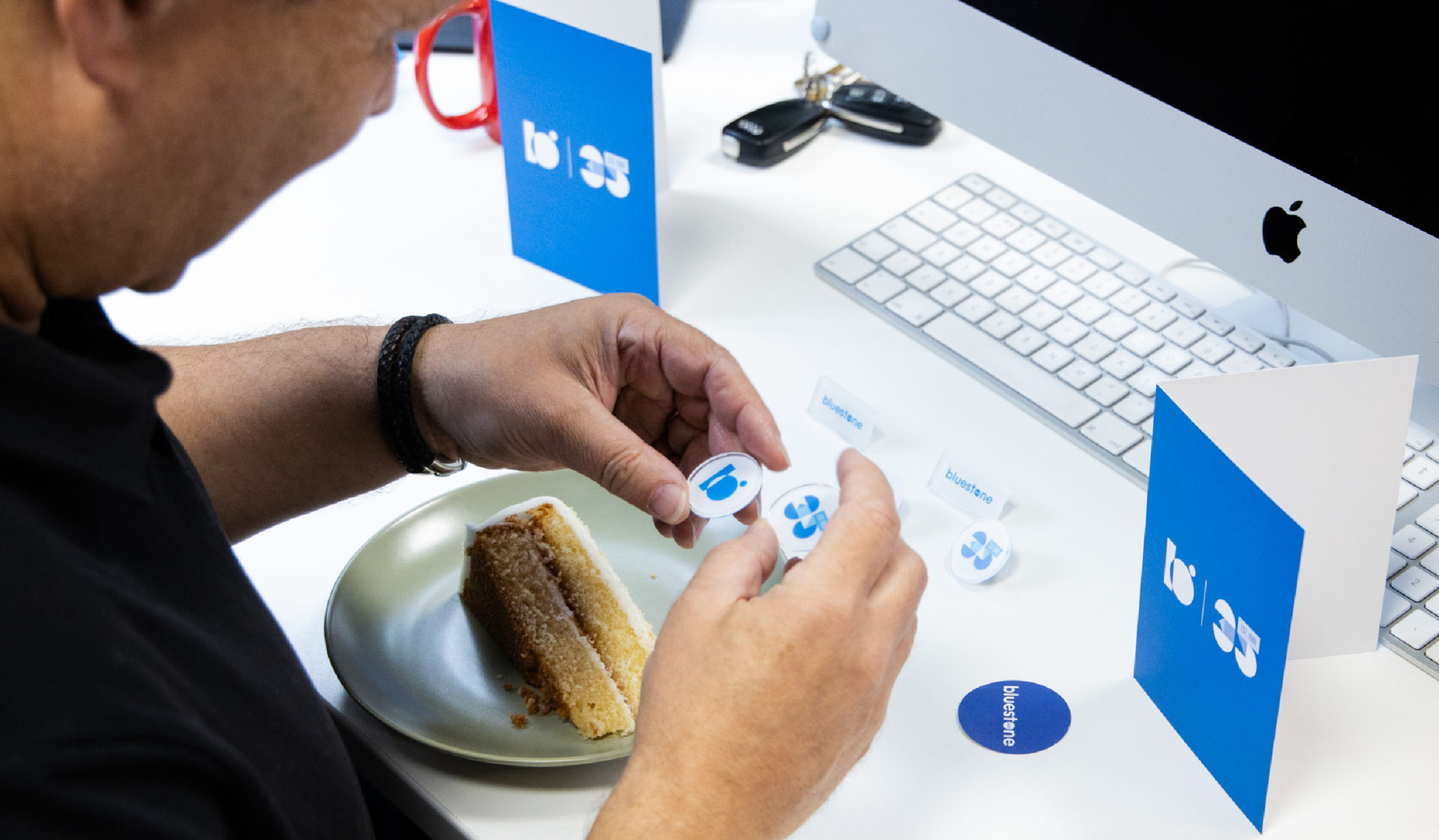
What’s the biggest culture shift or change in running an agency in the last 35 years?
The obvious answer should be computers, the internet and digital transformation. I remember when we sat watching a letter ‘A’ being printed out from a computer screen onto a printer, which took about a minute, and thinking it was amazing. So the internet and digital transformation should be the obvious answer and it has been a big culture shift to manage. But actually, to answer the question honestly, the biggest change, for me, has been COVID. That affected loads of businesses, and quite a few of our clients especially as it came close to the after effects caused by BREXIT.
We have managed through a lot of change over the years including two recessions, but the effects of COVID have been seismic. I think it’s changed the landscape for many agencies.
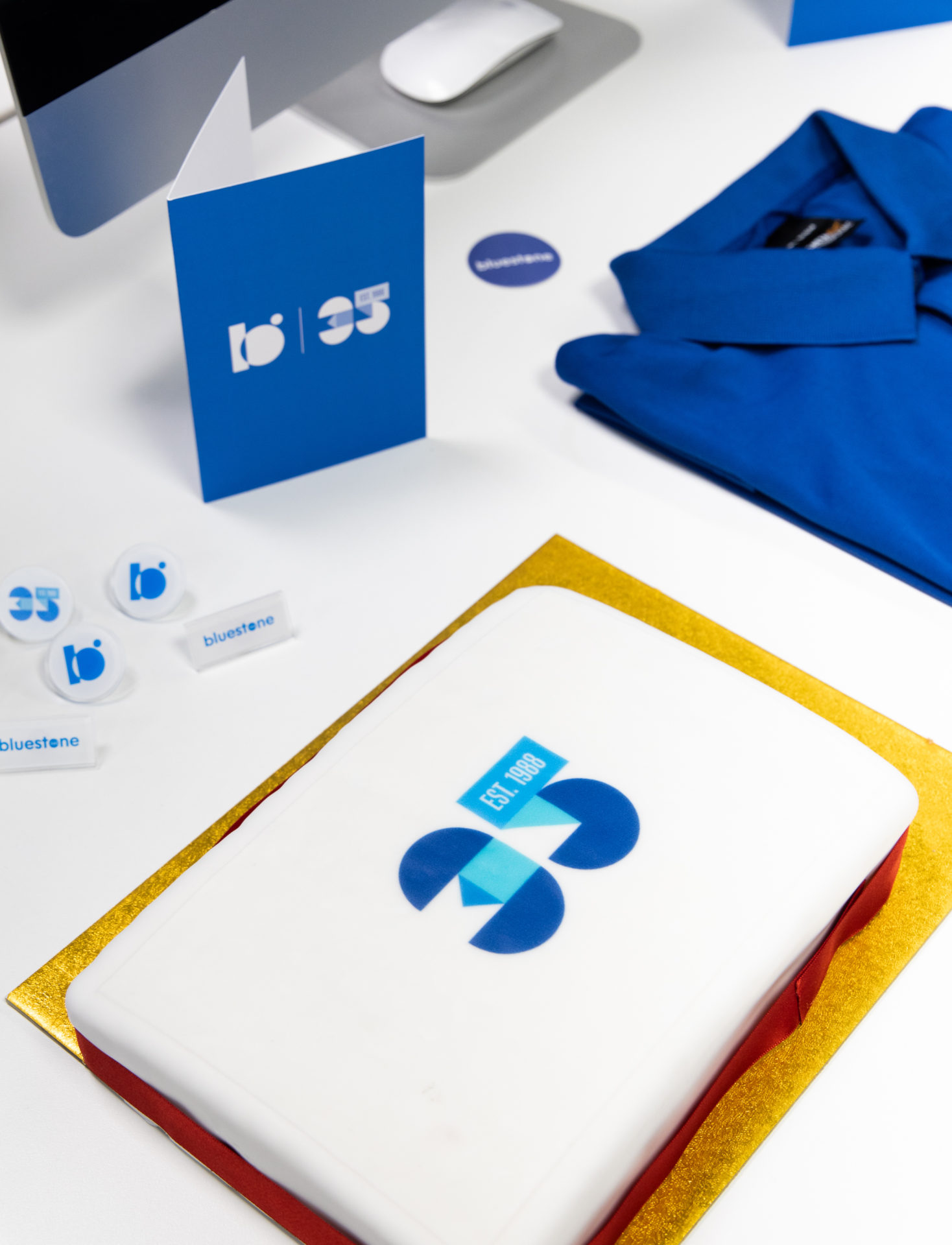
What’s the secret to longevity?
For me, running an agency is about constant adaptation and dealing with challenges head on and taking action. Different issues over the years have required a different set of solutions, but always in some way or the other the quality and character of individuals and the team plays a part. So you have teams that pull together at the right time, whether that’s directors who’ve got to respond to the business needs, or teams that have just won in a pitch when needed, or have done some great work that helps secure a client. Lots of different things. But I think what underpins it all is that absolute sense of stubbornness and resilience, when it’s tough. You just keep going, you keep fighting, you never, never give in.
I’ll just take this opportunity to thank everyone who has been part of Bluestone over the years, there’s too many to mention but they will know who they are!
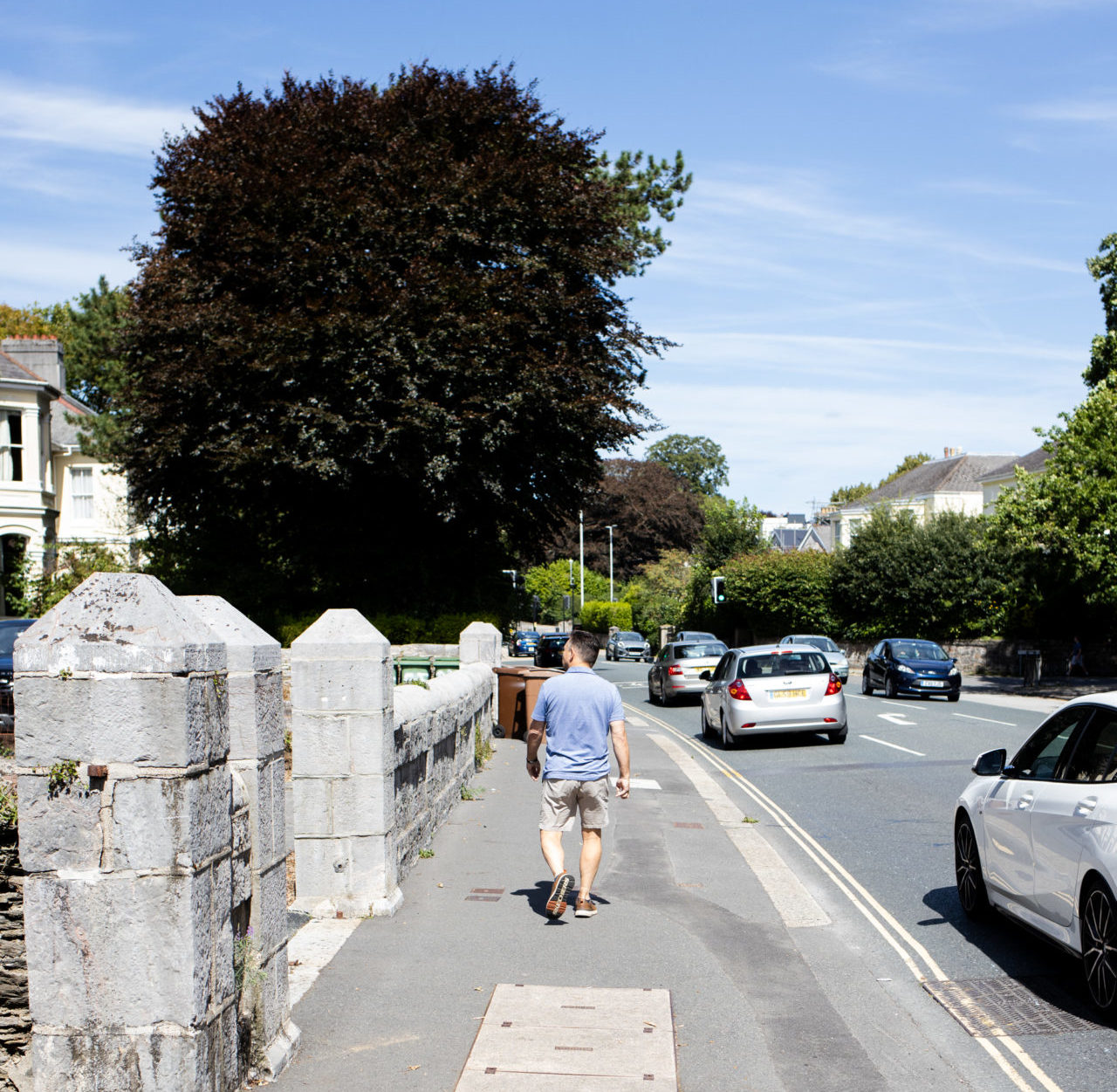
What’s the favourite thing about your job?
I love the creative sector. I love creative thinking, and creative thinkers, so I still get excited seeing creative in any form. I don’t design directly anymore though, but I’m a graphic designer by nature, and it never goes away.
I enjoy design, from the aesthetic side and the role it has, which is arguably about, informing, identifying, persuading and wowing and how this relates to brand work, which is more strategic to create differentiation. When all that comes together and you see it in the clients reaction. They have seen various stages from mission and vision statements, planning, BrandDNA sessions, stylescapes and some creative but when you join it up and they go, oh, wow, that’s brought something to life that didn’t exist in terms of a brand, and when that clicks and you see that team spark up and rally behind their new brand, you sort of think, well, that’s quite rewarding, it’s quite nice.
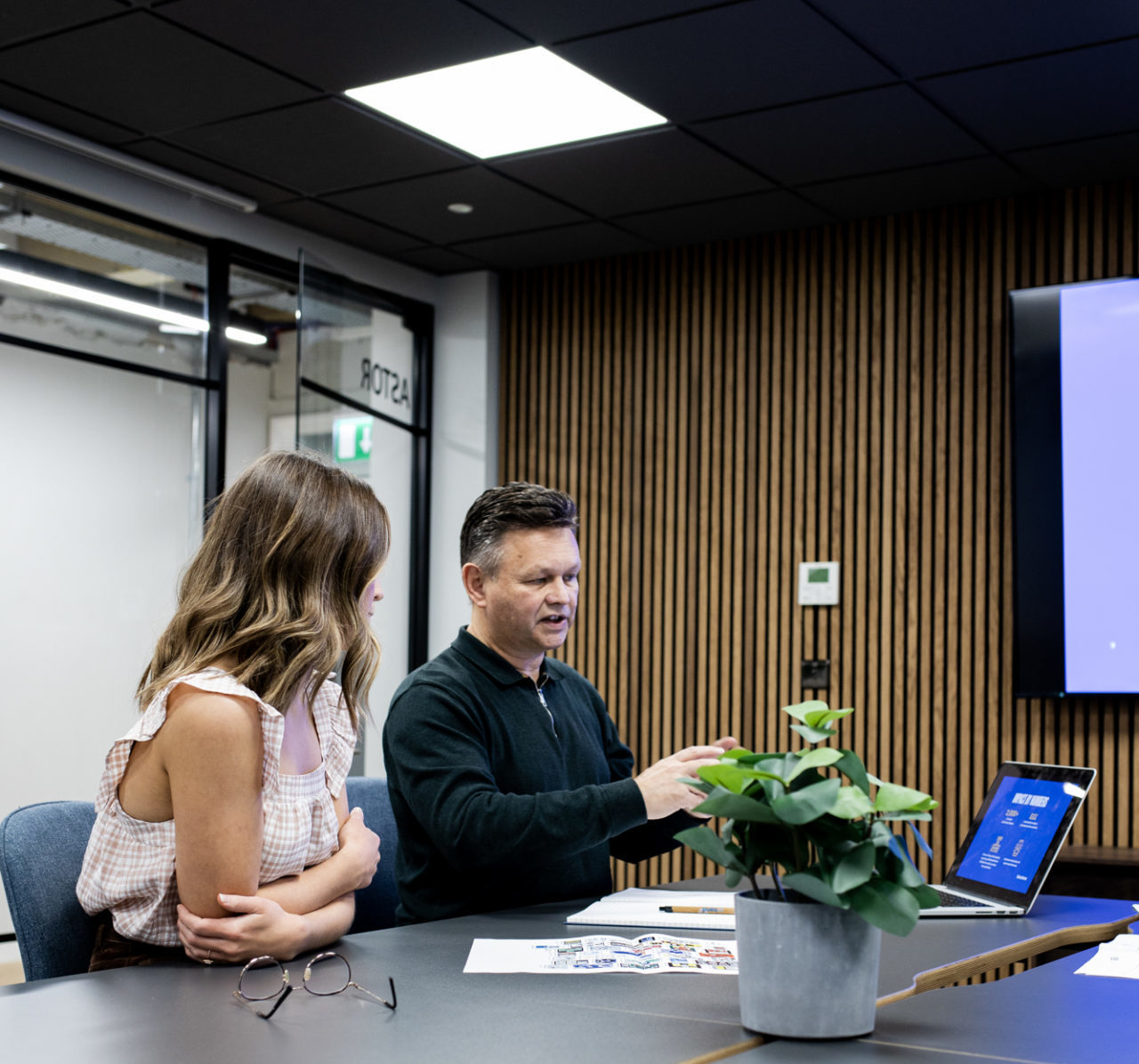
What’s one thing you recommend everyone to try?
Get on a beach, in the sea and catch some waves. I think for lots of either serious reasons or non-serious reasons, because it gives a sense of perspective and balance and it’s actually good fun.
You can just switch off and focus on the waves and sea, something natural. It gets the endorphins flowing or whatever. It’s just a sweet sense of balance and nature.
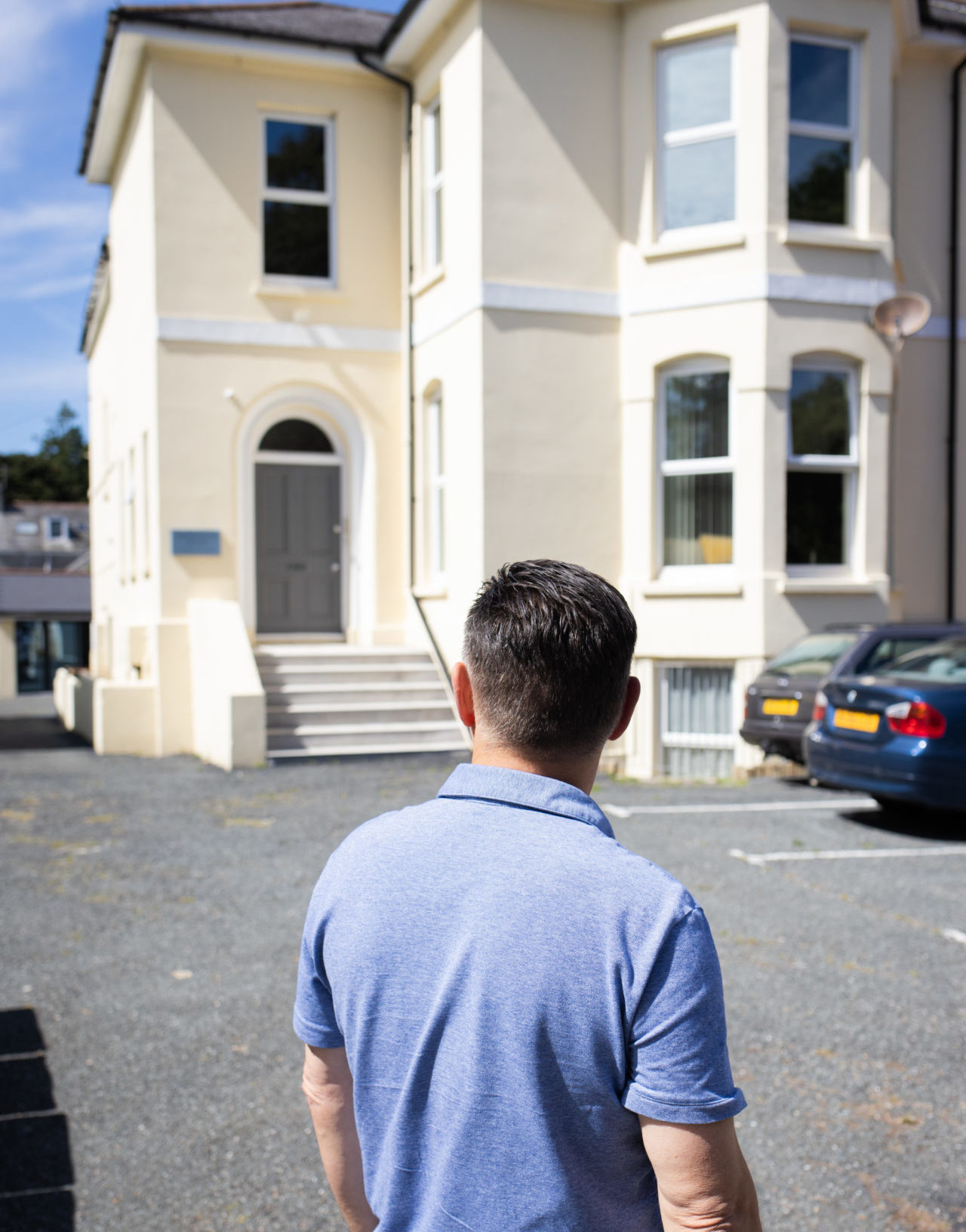
What is a recent piece of work that you’re most proud of?
I don’t think you can do design and brand work if you don’t feel attached or connected to it in some way, you have to have confidence in it and feel proud of it to be able to create and produce the work. I know sometimes it’s functional, it’s not going to win any awards or anything, but actually that kind of design is doing what it should be doing, because the brief has got an objective. That is all still something I’m proud of. Sometimes when you see the team doing the work, you’re kind of going, yeah, that’s pretty cool, that looks good. So there’s a lot of pieces I like.
One that stands out, is the brand work we did for Ocean Conservation Trust. The brief stated they did not want to have blues and typical icons and stuff that dominates the sector. They wanted stand out, so after a lot of concepts we went for a pink circle, very simple. You can argue you’ve seen it before, but it was the simple idea that made it one that I’m proud of. It was the ratio of 29% of the middle of the circle being land and the remaining 71% being ocean, and it was tinted bright pink because it’s in danger. I like simplicity in strong ideas. The thinking that went into it, working with the team at Ocean Conservation Trust, developing the creative, it brought everything and everyone together to create something with meaning that is still evolving and moving forward. It was just nice to work on a project that had a little bit more meaning to it with good people. So that always stands out for me.
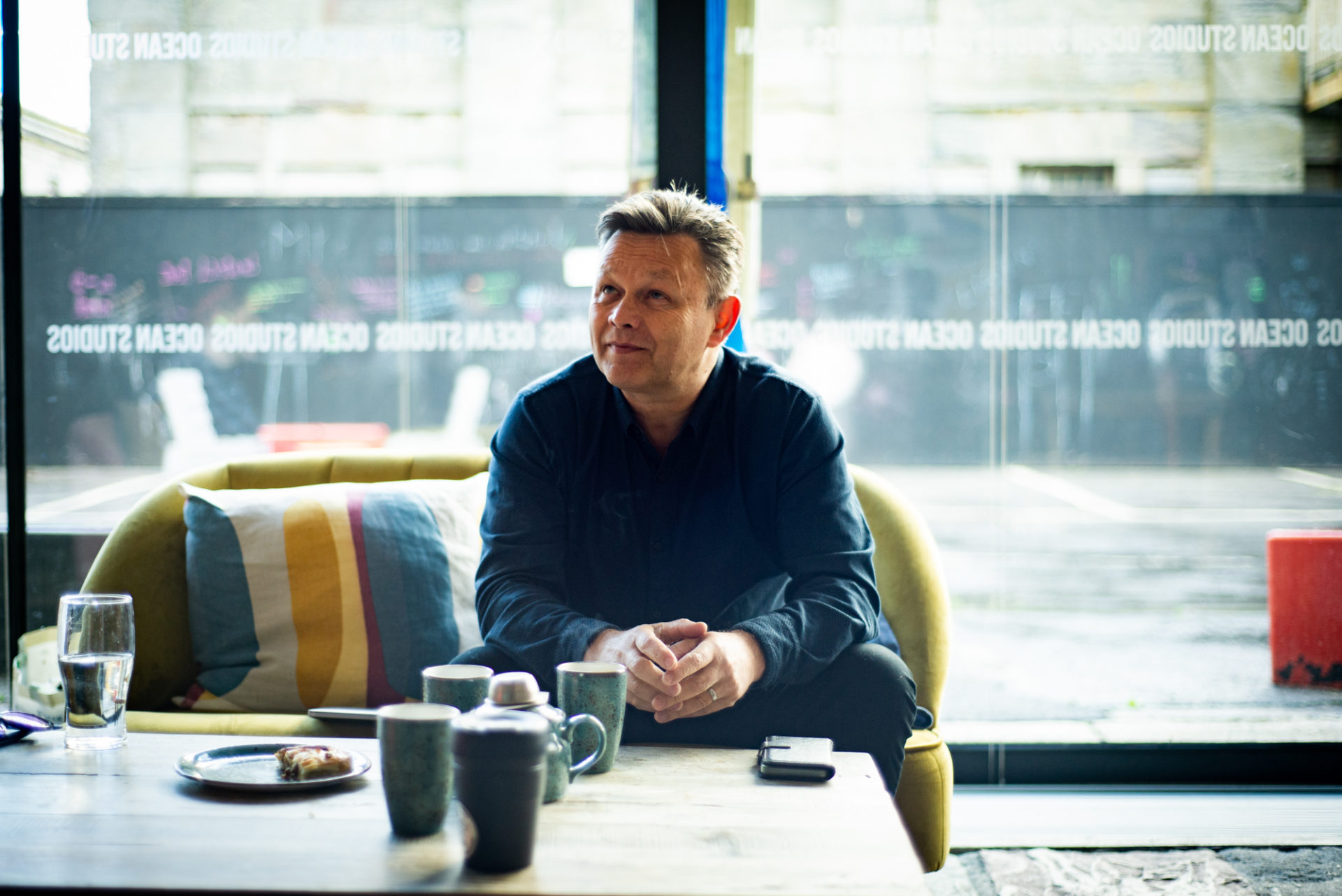
How do you maintain a work life balance?
Well, I think as a business owner, I don’t know whether I keep a work life balance, but I have definitely built-up strategies to try to keep balance when things get hairy, as they do.
Nothing complicated, sit on a beach or sit on a rock, put my feet in the sea, get in the water. The sea and the beach and the coast really kind of just sort of smooth it all away and help me focus so that gives me my balance. Recently my wife and I got a dog, so I get out everyday and walk around a bit of water somewhere, that helps. That’s simple stuff, nothing crazy. Of course I’ve got my wife, family, and friends that I can talk to as well. So I just try and stay balanced.
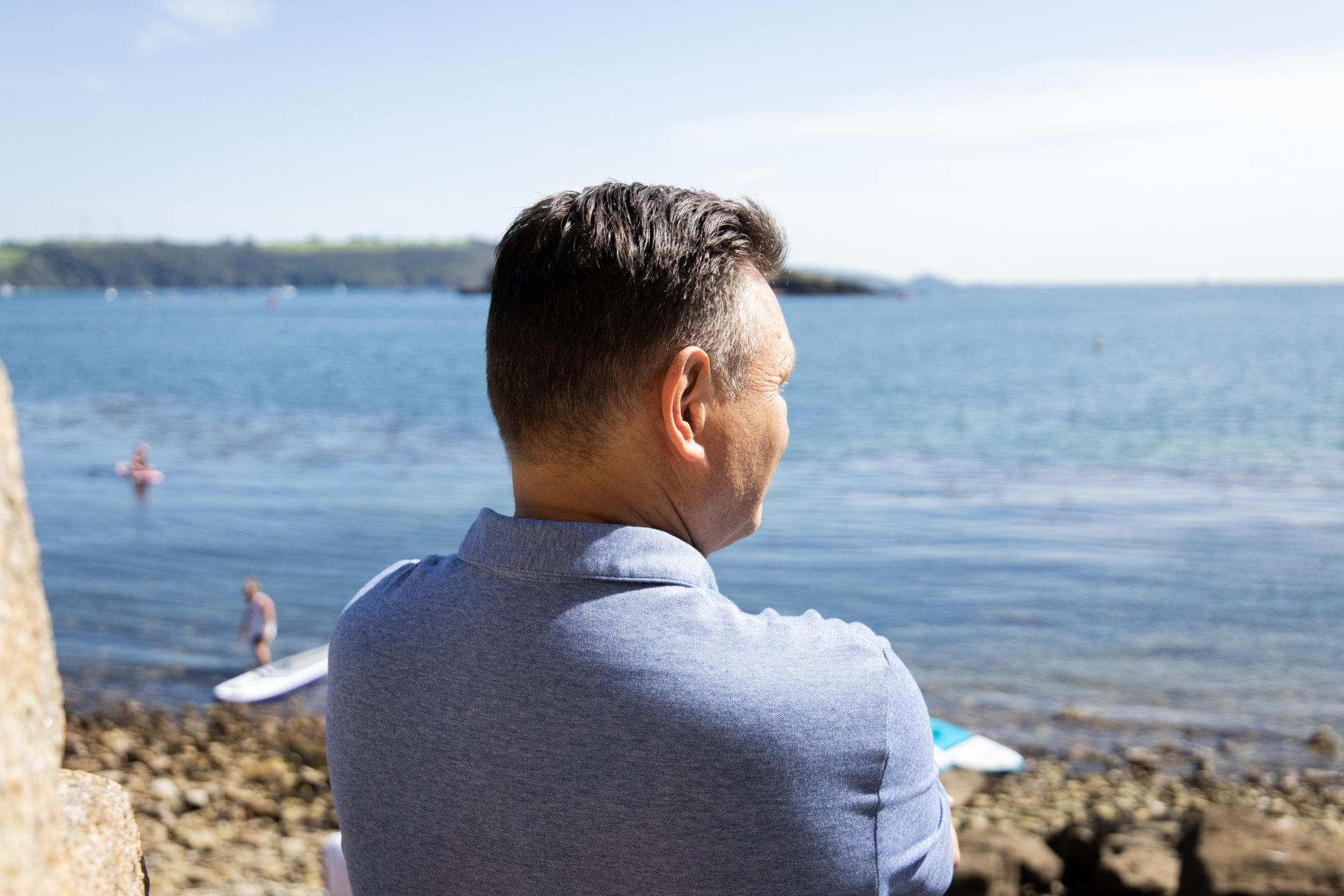
What are your plans personally and for the company, for the future?
I think that’s quite a hard one because obviously I’m not getting any younger, so the business getting to the next stage is quite key for me to fulfil my personal ambitions because really, Bluestone and me are kind of intertwined. COVID’s obviously had an effect and we’re still dealing with the aftermath of that. So I’m probably planning not to plan or visualise too far ahead because I’m dealing with the next year or two before I get ahead of myself. Stay flexible.
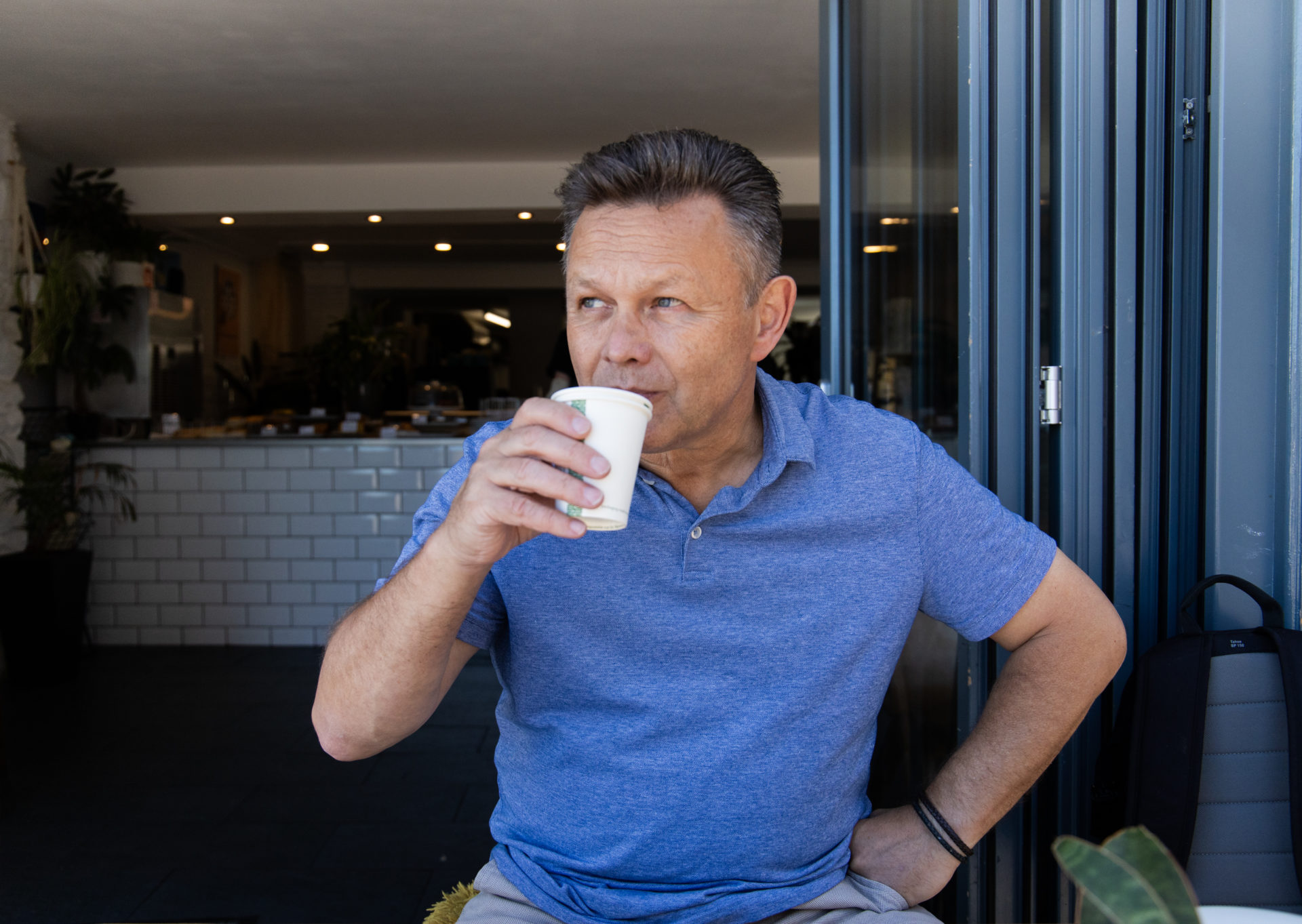
Playlist or Podcast? And any recommendations?
So neither really though I’m sort of showing my age. I have listened to playlists and podcasts but I listen to CDs and read books more.
Could you recommend a book? One book for everyone to read?
At heart I’m still a graphic designer and when I was in art college, there was this book called ‘Design For The Real World’ by Victor Papanek that really influenced me. It wasn’t about graphic design but about designing things for third world countries that were actually useful, like irrigation systems and stuff. The old way was to use electric or petrol generators, which would eventually break down and then nobody would get any water as no one in the community had been taught how to use them properly. Papanek made the point that you have got to make things that are relevant to the audience and actually work for them. He suggested using simpler corkscrew systems that people could learn how to use before moving on to more complicated technology. There were a ton of cool things in that book that really shaped how I think about design. It’s not just about making something pretty, it’s about making something that actually works and has a real impact and is appropriate to your audience.
I thought that was a great book and the message to keep it simple and think about your audience has stuck with me.
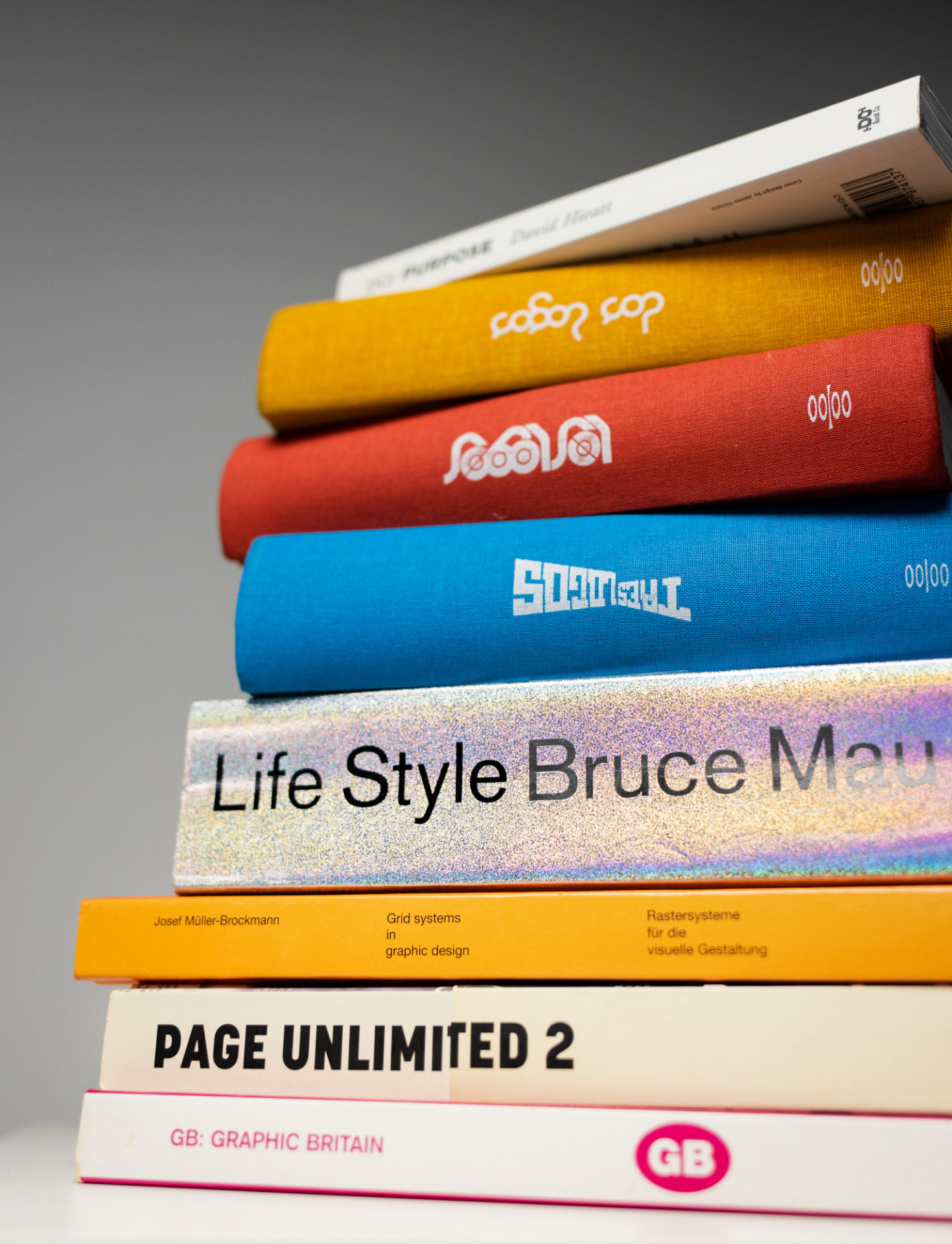
Any advice for people starting up their own agency or starting up their own business?
I think there’s a lot of advice out there, a lot of good advice.
Make sure you get help with your finances, things like putting enough away for tax, some basic financial forecasting and scenarios, stuff around that. Don’t get caught out with that side of things. A bit boring to creatives maybe, but important.
Think about what drives you. Why are you setting up your own business? What is the real motivation? How do you harness and focus that drive?
Think about the good and the bad that you might face. If you’re not a resilient person who can get through thick and thin, think about ways or the support you will need that will help you through tougher times. Going in with your eyes wide open is a good thing potentially, because you will likely face some challenges. I know that health and well-being is important at the moment and quite rightly, because it can be quite damaging if you can’t handle it when you have challenging times.
Making sure you have some people that are able to support you in some way is important. So whether they’re creative, strategic, part of a leadership team, friends, an understanding partner or family, whatever it takes to share the burden.
Having people to support you in the right way are key, really.
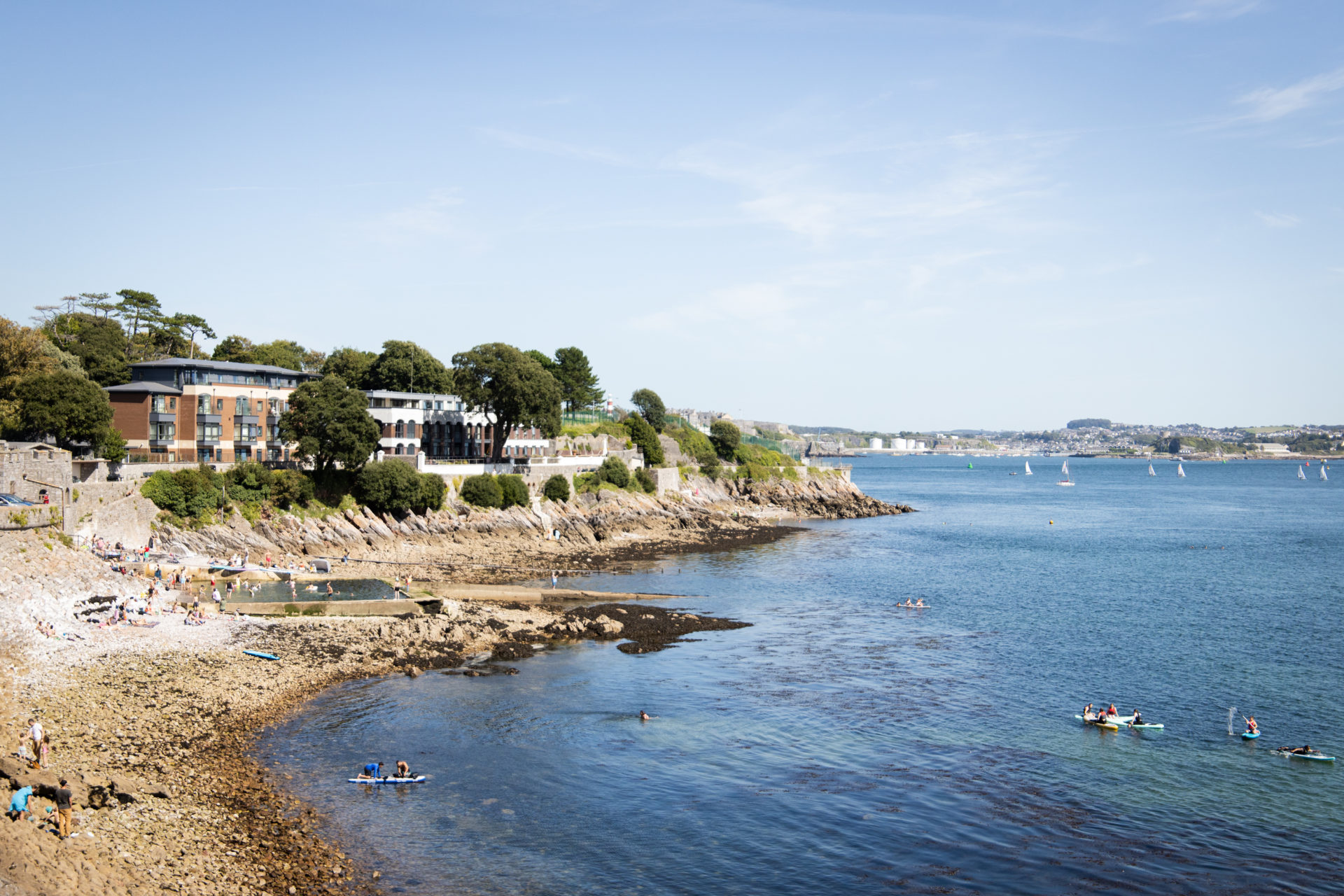
What keeps you in Plymouth?
The location by the sea and where it is in the South West peninsula, it’s where my life is. I grew up in Cornwall, North coast, which I love and where I still have family so I can still get there easily. I’ve had an up and down relationship with Plymouth, I think it’s a unique place, with its history and its location, and it’s great to see it’s starting to fulfil its potential.
I think if you’re lucky enough to be brought up in this part of the world, you don’t always realise what a great place it is when you’re younger. I couldn’t get on with London when I lived there. When I found myself running towards traffic lights to cross the road, I was like, hang on a minute, this isn’t right. I missed the sea and being close to the coast. So I moved back to Bristol for a few years, that wasn’t quite close enough so I eventually moved to Plymouth.
It’s also been nice to see the development of the creative sector here in Plymouth. Something that should be encouraged.
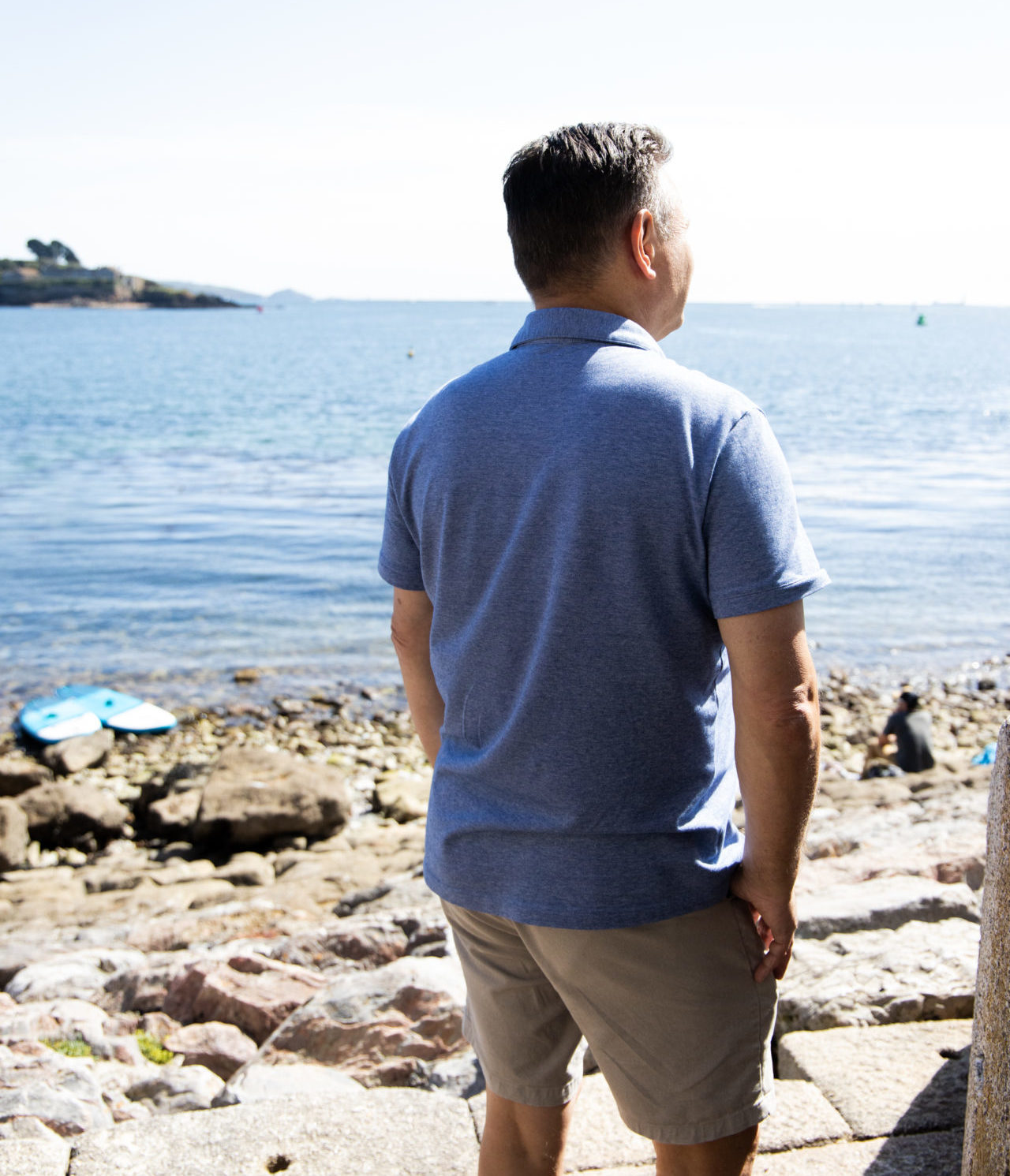
Check out more from Steve:
LinkedIn > https://www.linkedin.com/in/stevekyffin/
—
If you’d like to feature on our HEY Series please let us know. Get in touch here.